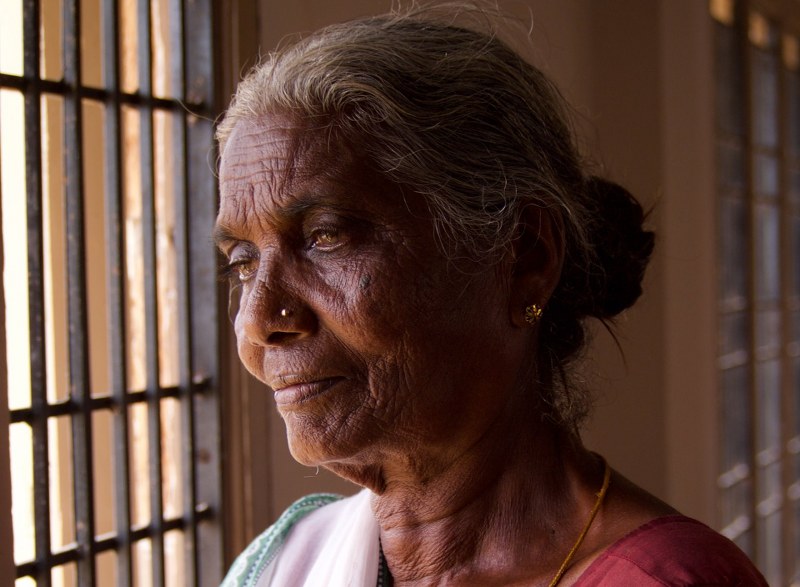 Elderly Abuse
Elderly Abuse India’s older women face the brunt of Exclusion: Social, financial & digital with rise in dependency and abuse, reveals report
Kolkata: Abuse against older women in India is witnessing a rising trend, with physical violence emerging as the top form of abuse, a report focusing on older women revealed.
The national HelpAge report showed an alarming trend regarding abuse against older women, which seemed to be on the rise at a disturbing 16%.
For the first-time physical violence came out as the top form of abuse, with 50% of those abused experiencing it, followed by disrespect (46%) and emotional/ psychological abuse (40%).
The main perpetrators of abuse were the son (40%), followed by other relatives (31%) which is troubling, as it denotes that the abuse extends beyond the immediate family circle, this was followed by the daughter-in-law (27%).
Despite facing the abuse most older women did not report it due to ‘fear of retaliation or further abuse’ (18%) being the top reason, followed by 16% who seemed to have no awareness on available resources, while 13% think their concerns would not be taken seriously.
Fifty-six percent older women lacked awareness on redressal mechanisms available for abuse, with only 15% being aware of the Maintenance & Welfare of Parents & Senior Citizens Act and 78% of older women are not aware of any government welfare schemes.
Their social status only further added to their woes, with 18% of older women stating to have faced discrimination due to their gender, 64% faced social discrimination due to their marital status i.e. widowed.
On the economic front, 53% of older women do not feel financially secure. Of the 47% who ‘do’ feel secure, 79% are dependent on their children for finances.
A total of 66% older women in India don’t own any assets, 75% older women do not have any savings.
Where digital inclusion is concerned older women are far behind, with 60% older women have never used digital devices, 59% older women not owning smartphones.
Thirteen percent older women said they would like to enroll for some skill development program online.
A significant 48% of older women have at least one chronic condition, yet 64% older women have reported not having any health insurance.
As many as 67% older women still undertake caregiving roles in their families, while 36% older women are not able to manage the burden of caregiving.
As total of 47% of the older women who are working, said that they do not find their environment at home friendly towards work, while 36% of the older women who are working, say the same for their environment at their workplace.
Forty three percent elderly women worry of getting physically harmed, with 76% saying its due to ‘fear of falling’ and 46% stating due to weak eyesight.
The report was spread across the length and breadth of the country covering both rural & urban India across 20 states, two UTs, and five metro cities, including, West Bengal and Kolkata, with a sample size of 7911, covering various socio-economic categories. In total, West Bengal, including Kolkata had a robust sample size of 589 respondents.
About 42 percent of women in Kolkata are widowed, and merely 14 percent own some kind of asset or property in their name.
Only 22 percent of senior women are employed in Kolkata, and the rest are dependent on family support for their survival.
A total of 58 percent of Kolkata's elderly women do not feel financially secure.
Sixty-seven percent of senior women accept that elder abuse exists in society, even though only seven percent have experienced it, among the lowest abuse figures in the country, as per the survey.
In the rest of West Bengal, 61 percent of women are widowed, while 77 percent of senior elders do not own any property.
Thirty-four percent of senior citizens in West Bengal are employed, even though 83 percent do not feel financially secure.
Over forty percent think elder abuse exists in Bengali society, while only seven percent accept that they have been subjected to abuse by their close relatives, including sons, daughters, and daughters-in-law.
HelpAge India CEO Rohit Prasad said, “It is a stark reality that women, as they become older, tend to become neglected and are often invisible. Women aged 60 plus comprise 11% of the total women population (7 crore of 66 crore) in 2021 and it will become 14% by 2031 (10 crore of 72 crore). The report highlights the gender inequality gap and the vulnerability elderly women face nationally.
“It throws up some hard facts such as 54% are illiterate, 43% are widowed, 16% face abuse, 75% do not have any savings, 66% of older women don’t own assets and many feel financial insecure. Most are defined by the traditional roles they play in their families and communities, which are often taken for granted.”
The needs of elderly women are often overlooked and contributions go unrecognized.
Some areas for urgent response are raising awareness about government welfare schemes, greater priority in pension, healthcare and economic participation programs, special schemes for elderly women and recourse to redressal mechanisms for elder abuse, he said.
As per the 2020 ‘Population Projections for India and States report’ and the demographic shifts, there is a distinct ‘feminization of ageing’ that is taking place due to rapid rise in ageing population and women living longer.
While the gender ratio for overall population is 948 females for 1000 males, the ratio in elderly is 1065 (more females in elderly population) which further increases with age.
The HelpAge report brings out the ‘unpreparedness and dependency’ of older women starkly, with high illiteracy levels, low financial security, lack of awareness on redressal mechanisms and schemes beneficial for them, lack of employment opportunities and medical cover, it leaves them open and vulnerable to abuse.
HelpAge India Head – Policy & Research Anupama Datta said, “Females are at social, economic and educational disadvantage from an early age, this impacts their lives in old age in unimaginable ways. They seldom make choices about their lives and despite all the good intent they remain secondary in almost all aspects of life.”
Fifty one percent of the older women have reported being ‘never’ employed, while 32% older women want work till as long as possible.
Anupama Datta asks, “But where are the opportunities?
This can be interpreted to mean low or no social security in old age. Not much is done by way of creating an enabling environment for them. Nearly 70% of the older women have reported a lack of adequate and accessible employment opportunities.
“If technology is the future, where do we see these hapless women today’s digital world? 59% older women don’t even own smartphone. In this day and age 72% older women said they can’t take decisions for themselves. We need to rethink on how we can enable and encourage these women to be self-reliant after all they will outlive their partners who have been taking decisions for them,” she says.
HelpAge India suggests the following measures to improve the quality of life for older women, in India, so they can live with dignity:
· Need raise awareness around the importance of gainful employment and undertake capacity-building efforts. Promote elder-friendly working environments.
· Raise awareness on the importance of physical and mental health amongst older women and their families.
· Promote a culture of empathy, understanding and respect through educational platforms.
· Implement digital training workshops for older women.
·Raise awareness on elder abuse and promote redressal mechanisms through door-to-door volunteers, television, radio and digital platforms.
· Raise awareness amongst older women regarding their rights and entitlements.
· Simplify procedures and processes to apply for government welfare schemes for older women.
Support Our Journalism
We cannot do without you.. your contribution supports unbiased journalism
IBNS is not driven by any ism- not wokeism, not racism, not skewed secularism, not hyper right-wing or left liberal ideals, nor by any hardline religious beliefs or hyper nationalism. We want to serve you good old objective news, as they are. We do not judge or preach. We let people decide for themselves. We only try to present factual and well-sourced news.







